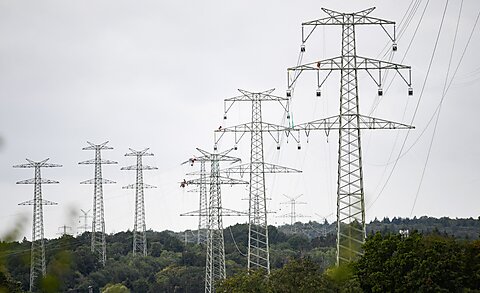Travis Fisher
What comes to mind when you try to imagine a truly free market in electricity? Many electricity policy experts would point to the advent of wholesale electricity markets and retail choice in some regions of the United States. Some economists (me included) would go further and advocate for the complete removal of government intervention in the electricity sector.
Many of us can’t picture a free market in electricity because the laws governing the industry have been so interventionist for so long. Today’s “natural monopoly” regulations date back to the late nineteenth century and became widespread by the 1930s. Policymakers were convinced (in some cases, by the utilities themselves) to preempt the anti-competitive behavior of electricity monopolies by 1) granting them legal monopoly privilege and 2) adding significant oversight such as “rate of return” regulation to mitigate monopoly behavior.
First, especially among libertarians, there must be a better policy response to the problem of monopoly power than guaranteeing it and regulating it. Second, many reforms enacted since the 1990s were more re-regulation than de-regulation. True free-market reform of electricity regulation has never been tried. Although supporters of regulation argue that electric utilities are the poster child for “natural monopolies,” that assumption may not hold and has not been tested (maybe ever, and certainly not in the last 100 years).
One solution to the monopoly problem is to allow new, private utilities to develop and compete wherever they make sense. But to disentangle these new utilities from the massive regulatory red tape that has enveloped existing utilities for decades, they would have to be physically unconnected to existing grids.
Such networks would likely be small in geographic footprint but large in terms of electric power—think of an industrial campus with a co-located generator. Note, however, that grid-connected efforts along these lines have faced significant regulatory headwinds and will be the subject of a technical conference at the Federal Energy Regulatory Commission in the fall. Avoiding regulatory delays and administrative headaches would be a key advantage of a new, unconnected network.
Cost is the primary barrier today. Private grids would likely be more expensive than contracts with incumbent utilities, although innovations in electricity generation technology could change that calculation. Then again, some buyers may be willing to pay more to have full control over the resources they use—power from the existing grid is a mix of a variety of resources, making its environmental attributes hard to pin down.
At the societal level, the obvious upside to allowing competition is that we could finally bring a dynamic market process to the electricity industry. Who knows what innovations entrepreneurs could bring to the industry if they didn’t have to ask for permission from regulators? Allowing a brand-new category of electricity suppliers also addresses the looming challenge of sharp demand growth in the slow-moving electricity industry.
For state policymakers, private grids are a no-cost economic development plan. Rather than incentivizing new industries to locate in the state through tax credits or other subsidies, just getting out of the way of new developments would be a pro-growth policy. And if a new development fails, so be it—there’s no risk to taxpayers or ratepayers, unlike with projects built by regulated utilities.
The real winners would be consumers. To be clear, the idea of private utilities operating on islanded grids didn’t make sense until recently, when big new customers (large “loads” in electricity parlance) became subject to long interconnection delays and high up-front interconnection costs. Some electricity customers—like data centers or manufacturing facilities—want to move quickly, and their willingness to pay for more speed or reliability is likely higher now than we’ve seen in the power sector in a long time.
Although it would be wonderful if free-market competition were enshrined in federal law, the prospect of market-oriented reforms at the federal level looks bleak. Both major parties seem very comfortable with government intervention, and the contrast between the presidential tickets often boils down to different flavors of industrial policy (for example, to support renewables versus fossil fuels, to subsidize electric vehicles versus all vehicles made in the United States, to impose tariffs on specific goods or countries versus all imports, etc.).
Sometimes the state level is the place to look for new answers. And when it comes to the idea of enacting truly competitive reforms in the electricity sector, states are in control. All it would take is a modification of the statute that created the state’s public utility regulations in the first place and a clear declaration that new private utilities—if they are not connected to existing infrastructure—will not be subject to monopoly regulation.
In the worst case, no one would take advantage of the new option. In the best case, a new type of industry would develop that would be faster, more customer-focused, and more innovative than anywhere else in the country.
Disclosure: I am a volunteer advisor with the newly formed group Advocates for Consumer Regulated Electricity.

